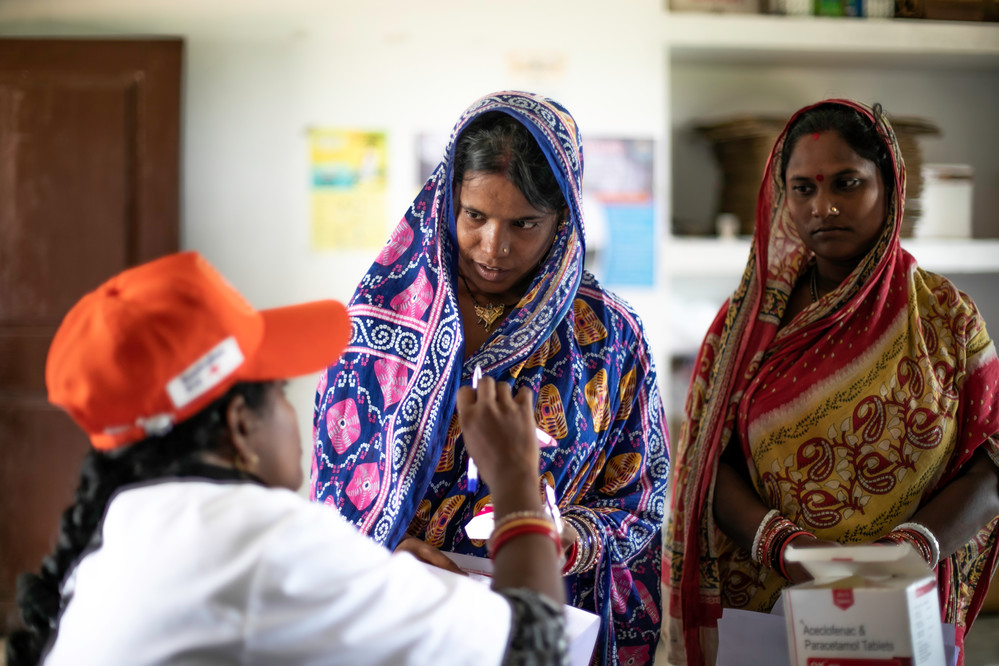
Filter our news by:


| 09 December 2016
Landmark Seoul Declaration at the 18th General Assembly of the Asia Pacific Parliamentarians’ Conference on Environment and Development (APPCED)
Seoul, Republic of Korea, November 11, 2017 Landmark Declaration on population, climate change and sexual and reproductive health services 57 members of parliament, speakers and senators from 15 countries gathered to pass the landmark Seoul Declaration Seoul Declaration at the 18th General Assembly of the Asia Pacific Parliamentarians’ Conference on Environment and Development (APPCED). Supported by the National Assembly of the Republic of Korea, the Korea Population, Health and Welfare Association, an IPPF Member Association, and the Korean Parliamentary League on Children, Population and Environment, the Conference provided a platform for leaders to discuss how to prioritise the implementation of the 2030 Agenda on Sustainable Development in an integrated way. Calling on member states and parliamentarians to recognise the interlinkages between population, climate change and access to sexual and reproductive health services, the Declaration sets out an unparalleled commitment for Parliamentarians to take action on implementing the 2030 Agenda for Sustainable Development. Building on previous APPCED Declarations and the Paris Agreement on Climate Change, which came into effect on 4 November 2016, the Seoul Declaration sets out the commitment of parliamentarians to ensure that they act urgently and decisively to respond to the negative impacts of environmental degradation, climate change and unsustainable development, and resolve to work together to develop innovative and gender responsive approaches to climate change. It calls on members of parliament to play a full role in supporting the monitoring of progress towards achieving the 2030 Agenda on Sustainable Development in their own countries, and to ensure that they are holding their governments to account for the commitments made through the 2030 Agenda. The Declaration also emphasised the importance of ensuring that countries develop resilience and are prepared for emergencies, and specifically called on the importance of implementing programmes of essential lifesaving services, including reproductive and health services, in emergency settings. Speaking at the APPCED conference, Anjali Sen, Regional Director of the South Asia Regional Office and Acting Divisional Director, External Relations of IPPF’s Central Office appreciated the support that the Government of the Republic of Korea has given to sustainable development, and the commitment of all the participants to usher in a new world. She said: “We are all here today, in South Korea, because we are all trying to find a way to work for a better, fairer world. The SDGs call on us to “transform our world”, a call that has been heeded by many of the leaders in this room. It is time for this transformation.” To read her full speech, please click here. The Seoul Declaration is the first step towards achieving that transformation; it was clear from active and engaged participation of the ACCPED in this agenda that Asia Pacific Parliamentarians are committed to making this ambition a reality.

| 05 October 2016
Newly launched: Tool to make data on young people's sexual health & rights more accessible
The Guttmacher Institute and the International Planned Parenthood Federation (IPPF) today released Spanish and French language versions of Demystifying Data: A Guide to Using Evidence to Improve Young People’s Sexual Health and Rights. The publication, which is also available in English, is designed to be a resource for advocates, sexuality educators, young people, service providers and others working to advance the sexual and reproductive health and rights of young people around the world. It contains a wealth of data on young people’s sexual health and rights in 30 countries and offers guidance on how to use those data to advocate for better programs and improved education and services. The guide highlights 70 key indicators on issues that include sexual activity, marriage and contraceptive use. Each indicator is defined and discussed in terms of how it can be applied in the context of advocacy, service provision and sexuality education. The data featured in the guide come from nationally representative surveys on sexual and reproductive health and were the latest available at the time of writing (i.e., the data span the survey years 2002 through 2010-2011). National-level data are provided for each country so that users can understand what is happening in their country and easily compare it to others in their region. By region, the countries covered are: Africa—Democratic Republic of Congo, Egypt, Ethiopia, Ghana, Kenya, Malawi, Mozambique, Nigeria, Rwanda, Senegal, Tanzania, Uganda, Zambia and Zimbabwe Asia—Bangladesh, Indonesia, India, Nepal, Pakistan, Philippines and Vietnam Europe—Albania, Moldova and Ukraine Latin America and the Caribbean—Bolivia, Colombia, Dominican Republic, Guatemala, Honduras and Peru. Data from the Dominican Republic, for instance, show that 88% of boys and 90% of girls attend primary school, but that just 38% and 53%, respectively, attend secondary school. Thus, policymakers and youth advocates could use these data to show why it is critical to deliver sexual and reproductive health and rights information when young people still attend primary school. This would enable boys and girls to learn how to avoid unintended pregnancy and STIs, and how to cultivate healthy intimate relationships before most begin having sex. IPPF and Guttmacher work in all of the above world regions to increase public awareness about sexual and reproductive health issues and to counter misinformation with sound scientific evidence. The Spanish and French versions of this guide take another step toward that goal by reaching out to a wider audience of stakeholders to promote better policies, service delivery and sexuality education.









